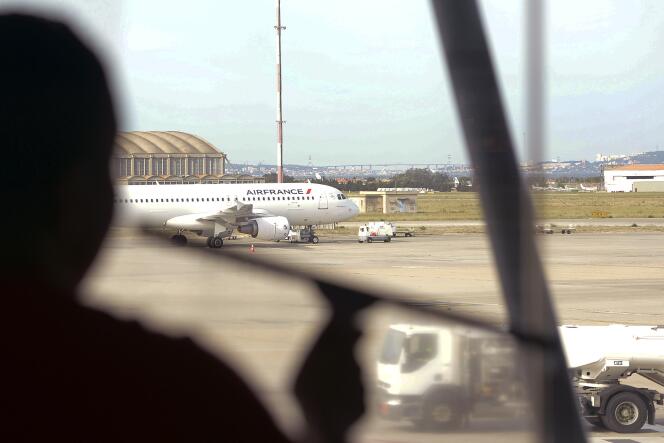
It was one of the emblematic measures of the citizens’ convention for the climate: prohibiting the construction and extension of airports in metropolitan territory. This proposal, which aimed to “Limit the growth of air traffic, a major emitter of CO2 », was translated into the Climate and Resilience Bill, presented to the Council of Ministers on February 10. But no current project to extend airports in France – among the ten under study – would be affected by this text, which also risks applying only to one “Extreme minority” projects in the future, estimates the Climate Action Network (RAC), in a note published Thursday, February 18.
It all lies in the wording of article 37 of the bill. It states that “Projects to create or increase the reception capacities of airports cannot be declared of public utility with a view to expropriation if they have the effect of leading to a net increase, after compensation, in gas emissions Greenhouse effect ” of the airline sector. The article will come into force on 1is January 2022. From what, according to the government, “Pose the fact that we can no longer extend an airport on the basis of the expansion of traffic”.
“This article has seen its scope so limited that it no longer has direct effect today”, says Agathe Bounfour, transport manager at RAC. The article de facto prohibits projects which require on the one hand to go beyond the current land holdings of airports, and on the other hand to expropriate private actors by means of a declaration of utility. public (DUP). “However, in the vast majority of cases, airports being very large areas, the owner has enough space to carry out the improvements on his own land, without needing expropriation, and therefore DUP to proceed with the work” , continues the project manager.
Only one project concerned
According to the RAC, which reviewed each project, the extensions of the airports of Nice, Marseille, Rennes, Montpellier, Bordeaux, Lille and Caen do not require expropriation and therefore DUP. Only the first two projects are currently subject to an administrative act: a building permit was issued on December 20, 2019 in Nice in order to extend Terminal 2 to accommodate 4 million additional annual passengers.
In Marseille, a building permit validating a first phase of work – in a project which aims in total to increase the reception capacities of 4 million annual passengers – has also already been submitted on December 22, 2020. All other projects extension are only at the study stage, without a legal decision.
You have 51.71% of this article to read. The rest is for subscribers only.
–


